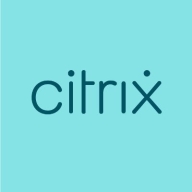


Microsoft Remote Desktop Services (RDS) and Citrix DaaS (formerly Citrix Virtual Apps and Desktops service) are leading solutions for remote desktop and application virtualization. Citrix DaaS appears to have the upper hand in advanced features and overall user satisfaction despite Microsoft RDS being favored for its lower pricing and more straightforward customer support.
Features: Microsoft RDS is praised for its simplicity and integration with other Microsoft products. However, users highlight Citrix DaaS's superior performance, scalability, and more comprehensive feature set, like enhanced security measures and better load balancing. Citrix DaaS's advanced features make it a more attractive option for complex virtualization needs.
Room for Improvement: Users of Microsoft RDS often call for better management tools and improved stability under heavy user loads. Conversely, Citrix DaaS users suggest enhancements in its complexity, seeking a more intuitive system to match its advanced capabilities. The comparison indicates Microsoft RDS needs improvements in technical robustness, while Citrix DaaS could benefit from user experience simplification.
Ease of Deployment and Customer Service: Microsoft RDS deployment is noted for being more straightforward due to its integration with Windows environments, coupled with responsive customer service. Citrix DaaS, although offering a richer feature set, has a steeper learning curve and more variable customer service experiences according to user reviews.
Pricing and ROI: Microsoft RDS offers a lower initial setup cost, attracting smaller enterprises or startups. Conversely, Citrix DaaS, with its higher costs, justifies the investment with better long-term ROI due to its advanced capabilities and scalability. Users find Citrix DaaS worth the higher price for extensive, enterprise-level needs.



Microsoft Intune provides centralized management of mobile devices and applications, ensuring security, compliance, and productivity through integration with Microsoft services like Microsoft 365 and Azure Active Directory.
Organizations use Intune for managing mobile devices and applications, enhancing security and compliance across platforms. With features like single sign-on, conditional access, and zero-touch deployment via Autopilot, it facilitates efficient operations. Intune's scalability, easy enrollment, and capabilities such as remote wipe support diverse device management, offering robust data protection and efficient operation. Despite its features, improvement areas include reporting, compatibility with non-Microsoft devices, and better support for macOS and Linux devices.
What are the key features of Microsoft Intune?
What benefits should users look for in reviews?
In industries such as finance, healthcare, and education, Microsoft Intune is implemented to ensure secure and compliant device management. Companies leverage its capabilities to deploy security policies and manage both corporate-owned and BYOD environments, facilitating a unified approach to data protection and compliance.
Enable secure, flexible work with the leader in virtual apps and desktops
Deliver desktop as a service (DaaS) from any cloud or datacenter
Get started with Citrix DaaS (formerly Citrix Virtual Apps and Desktops service) in minutes to provide a familiar, high-performance digital workspace experience to your users. We’ll manage the infrastructure and security. You focus on your business.
Microsoft Remote Desktop Services is a highly regarded remote access tool in addition to being a top-ranked Virtual Desktop Infrastructure (VDI) solution in the marketplace today.
Microsoft Remote Desktop Services (RDS) is a suite of valuable elements of the Windows operating system (OS) that serve specific desired objectives. Microsoft RDS integrates various features that allow approved users to gain access to graphical desktops and Windows applications remotely. Approved users are able to deploy applications or even a complete desktop without having to install anything on their devices. Everything remains in the cloud. This ensures that there are never any compatibility issues and keeps the organization's original network secure at all times. Administrators are also able to ensure that data cannot be stored in any unapproved location, such as the local device, unapproved drives, or any other location.
Microsoft RDS makes it easy for business organizations to access Windows Desktops and other Windows applications remotely to ensure today’s busy enterprise organizations are able to maintain the highest levels of productivity at all times. There are two basic ways organizations can effectively utilize RDS.
Microsoft Remote Desktop Services Benefits
Microsoft Remote Desktop Services has many benefits. Some of its most valuable benefits include:
Microsoft Remote Desktop Services makes it easy for busy enterprise organizations to stay productive and remain competitive in today’s aggressive marketplace. An organization's end-users can be given access to their own specific desktops from any location, anytime, using any approved device. Additionally, users can access Microsoft applications without having an effect on their device's resource capacity or performance.
Reviews from Real Users
“What I found most valuable in Microsoft Remote Desktop Services is accessibility because the solution lets you take control of your computer remotely, and that's a good feature.” Pascal B., IT consultant at Secoptrial
“The most valuable features of Microsoft Remote Desktop Services are unification, central management, and accessibility.” Jan S. Solution Architect at a tech services company
“The most valuable features are that it is fast and cost-effective. I am not aware of a replacement currently on the market.” Ramon H. Director at Empaco
We monitor all Remote Access reviews to prevent fraudulent reviews and keep review quality high. We do not post reviews by company employees or direct competitors. We validate each review for authenticity via cross-reference with LinkedIn, and personal follow-up with the reviewer when necessary.